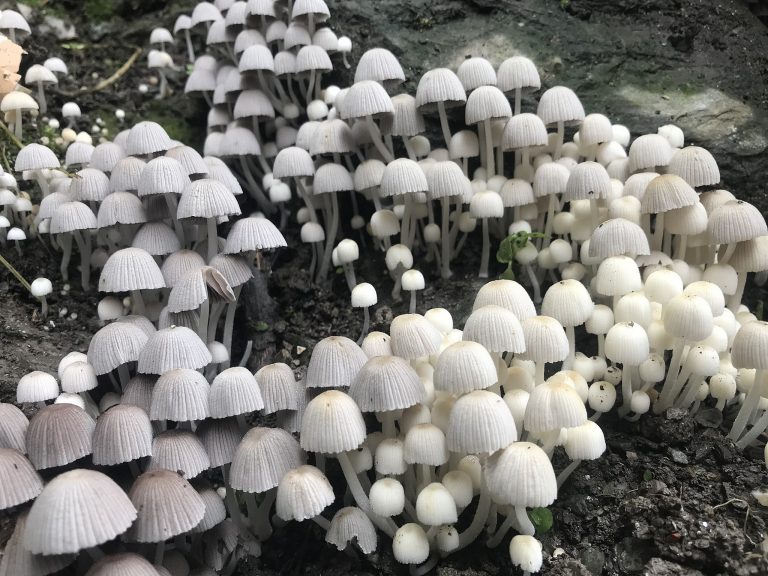The world of mushrooms is vast and mysterious. Some are delicious and others are murderous, but did you know that some were melodious? Various experiments have shown that mushrooms emit sound when connected to the proper equipment. With a couple of electrodes, a synthesizer and some fresh fungi, you can see for yourself whether you have musical mushrooms.
How to experience musical mushrooms
Every living being emits bioelectricity, or biorhythms. Various experiments have been conducted to translate these signals into audible sound — in plants, trees, and mushrooms!
Composer and mycologist Gabrielle Cerberville’s thesis work at Western Michigan University, probes the idea of musical mushrooms. Her Biodata Sonification of Mushrooms involves connecting fungi to sensors to make music.
“If I were to take a couple of electrodes and put them on your skin, I would get an electrical signal, and that will work with any living thing. You can do it on your dog, you can do it to a house plant, you can do it to a mushroom. As long as it is alive it will produce an electrical signal,” says Cerberville.
Cerberville is currently growing mushrooms for an auditory installation called Fungal Chapel at the Kalamazoo Nature Center, which will allow visitors to play their own duets with the mushrooms. The exhibit should open sometime in March.
Success
You are now signed up for our newsletter
Success
Check your email to complete sign up
Mycological researcher MycoLyco demonstrated that pink oyster mushrooms can “play” a modular synthesizer. In a five minute video, the pink oyster mushrooms appear to be manipulating the different functions of the modular synthesizer to which they are connected. The result is more a cacophony than a concert, but captivating nonetheless.
MycoLyco explained that he picked up the mushrooms’ electrical resistance by passing a small current through them; and then converted the various resistance into signals that control the rhythm, pitch and other functions of the synthesizer. He dubbed the score “mushroomcore” and suggested one could zen out to it.
Previous plant-sound studies
In 2013, Ted Farmer, a professor at the University of Lausanne in Switzerland, discovered that plants transmit information with electrical pulses and a system of voltage-based signaling, similar to our own nervous system. “It’s pretty spectacular what plants do. The more I work on them, the more I’m amazed,” said Farmer.
To conduct sound experiments on plants, one can gather the electric charge on the surface and pass it through the plant tissue, which then transmits the message to the rest of the plant. If one places an electrode at both the root and a leaf, these electrical signals can be translated into sound after different voltages are assigned a sound and pitch. When the plant emits a certain voltage, you will get the specified note.
To make it easy, there are now plant-into-music translators commercially available if you really want to know what your plants, and mushrooms, sound like. Like the baby translator invented by Herb Powell of The Simpsons, this may give you some seriously silly insight.
Dr. Ratnesh Mishra, a postdoctoral Fellow at the Laboratory of Functional Plant Biology at the University of Ghent in Belgium, takes a cynical view of the whole phenomenon. He commented that the synthesizer music created at a “plant concert” at Damahur was the result of movement within the plant caused by bubbles being sucked through the plant, especially when it is dry; and compared the experiment to synthesizing the noise made when one sucks up the last of a milkshake.
One might say that the best way to listen to all the beings around you, is to open your mind and heart, and let go of all the clutter and preoccupations that prevent you from hearing the music.
Music gives a soul to the universe, wings to the mind, flight to the imagination, and life to everything.
Plato











